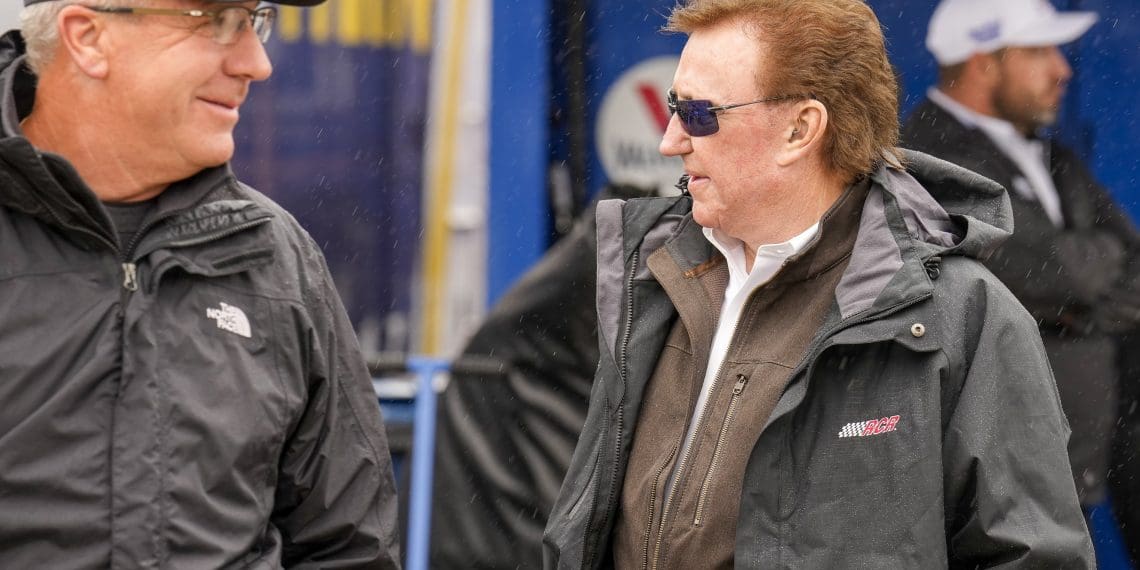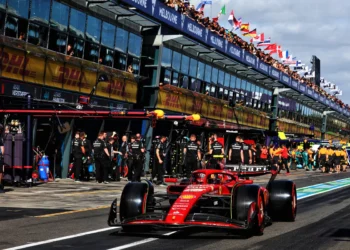A recent controversy has erupted in the high-octane world of NASCAR, with Richard Childress Racing (RCR) — a team steeped in history since 1969 — asserting itself as the embodiment of the sport’s blue-collar, hard-working ethos. However, comments from the team’s newly minted President, Mike Verlander, have triggered a backlash, raising questions about entitlement and authenticity in a sport that continues to evolve.
Verlander’s intent to reestablish the team’s connection with its loyal fanbase has been met with skepticism. He declared that RCR is the quintessential team of the hard-working folks in Welcome, N.C., and emphasized his commitment to the team’s authentic identity. Yet, his remarks about the competitive landscape, saying, “There are teams with slicker taglines and flashier shoe games, but that’s not who we are,” have raised more than a few eyebrows.
In the cutthroat world of NASCAR, such statements are bound to attract criticism. The hosts of the Rubbin Is Racing podcast, Large, Quigs, and Spider, were among those scrutinizing Verlander’s assertions. They questioned the team’s attempt to consciously adopt a blue-collar identity. Quigs offered a poignant observation, stating, “Blue collar is, kind of, like a thing that you don’t, like, attempt to do. Like, it’s kind of a natural, like, just way about yourself. You don’t have to, like, make it a strategy.”
Spider further questioned the authenticity of such a claim, stating, “Everyone who calls himself a blue-collar, I feel, is typically not blue-collar. That’s like my barometer. If other people call you blue-collar, I feel like you actually are.” Such comments underscore the fact that authenticity in branding cannot be manufactured but must be earned. It’s a sentiment echoed by Large, who asserted, “You don’t grab that moniker, right? You just don’t grab that moniker. I think it’s something that the fans give you.”
The controversy around RCR’s blue-collar claim is not merely about marketing gimmicks. It’s about a legacy team grappling with an uncertain future. With the majority of its fanbase aged 55 and above, RCR is attempting to reconnect with its roots while staying relevant in a rapidly changing sport.
However, recent performance issues have further compounded the team’s struggles. Despite boasting big names like Kyle Busch and Austin Dillon, RCR failed to secure a playoff spot in the 2024 NASCAR Cup season, highlighting the need for a significant strategic overhaul.
The team’s current trajectory suggests that without embracing innovation and attracting fresh talent, it risks slipping further behind its competitors. The question now is whether RCR can rise above these challenges and reestablish itself as the beloved blue-collar franchise, or if it will continue to grapple for relevance in an increasingly competitive field.
The controversy surrounding Richard Childress Racing is a stark reminder of the ongoing battle for authenticity and fan loyalty in NASCAR. As the sport continues to evolve, teams must strike a careful balance between honoring their roots and adapting to the changing landscape.










